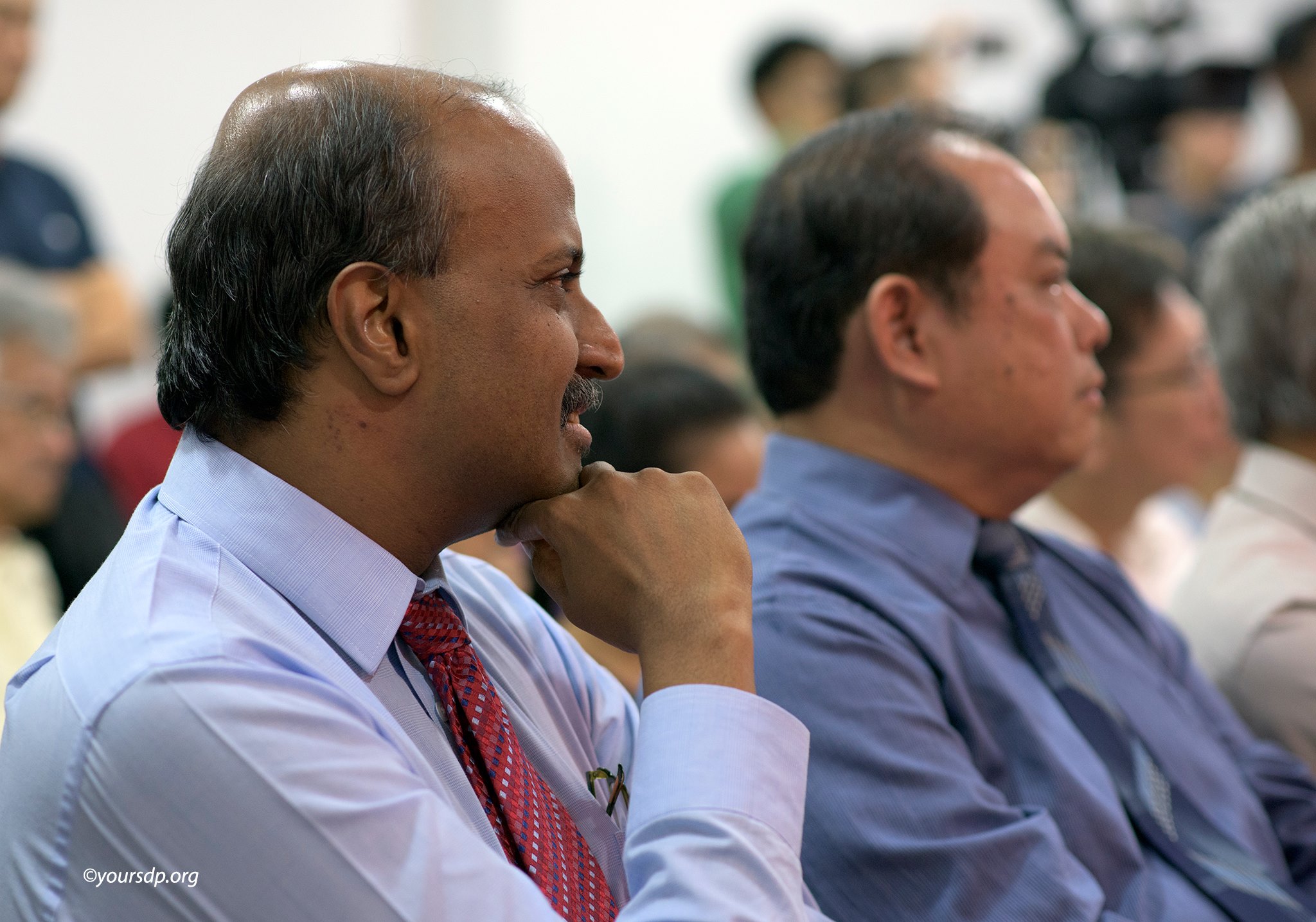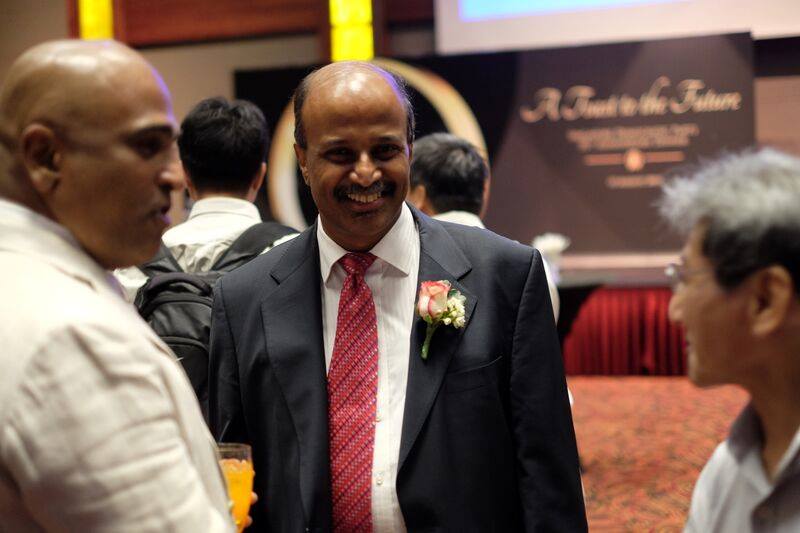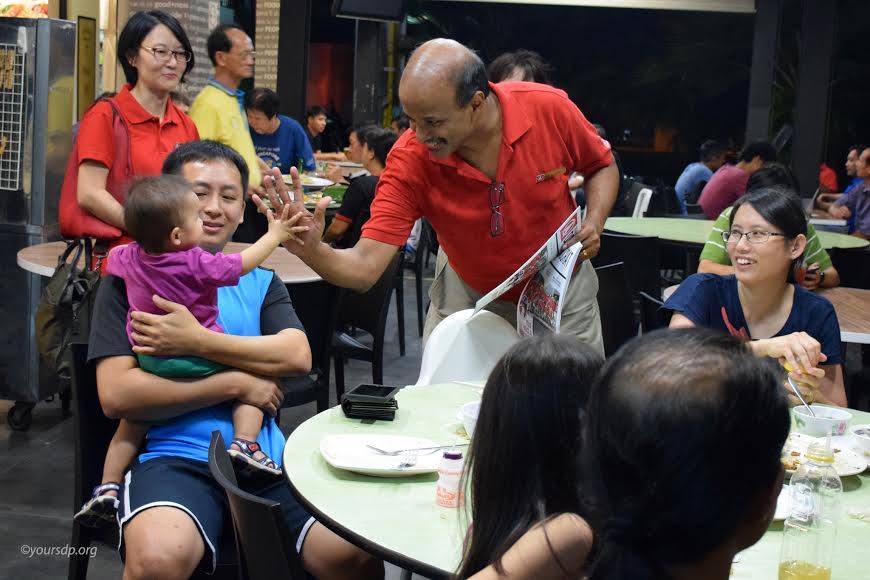Professor Paul Tambyah is a kindly-looking, balding man with a moustache, and his former students at the National University of Singapore School of Medicine say they were inspired by his teaching.
Having spent some 20 years treating patients in the infectious diseases department at the National University Hospital, Prof Tambyah has accumulated the same number of awards in teaching and research.
Yet, he is among a growing group of super-qualified Singaporeans who are also serious about giving back to society and who does so through joining the Opposition rather than the People's Action Party.
The group of choice for this esteemed doctor: the Singapore Democratic Party.
What drives Dr Tambyah? We thought we'd find out a bit more about him through a few Mothership.sg-style questions:
 Source
Source
1. What do your students say to you about your involvement in politics and the Singapore Democratic Party (SDP)?
The students have been overwhelmingly supportive! Many of them are seriously dating and are concerned about whether they will be able to enjoy the same standard of living as their parents. Some of the more thoughtful ones while recognizing the excellence of healthcare in Singapore, ask questions about why patients find the complex public healthcare system so difficult to navigate. They seem to be pleased that one of their teachers is asking questions about the healthcare financing system and the need for healthcare reform.
2. Describe yourself in 140 characters.
A husband, son, doctor, Professor, NSman, who is not afraid to speak his mind. All Singaporeans deserve a free, democratic country where they can live their dreams.

(Eh, salah lah. You went over by 24 characters here, prof!)
3. Describe SDP in 140 characters for our younger readers.
A caring, competent, compassionate political party that has the ideas and the people who can help give all Singaporeans a brighter and more democratic future.

(Again, over by 18 characters. Doc, you need Twitlonger, perhaps!)
4. You mentioned that you only voted once in GE, since you are a resident of Tanjong Pagar GRC. Are you satisfied with the management of the constituency so far? Will you give SingFirst a chance?
I am glad you asked that! For the first 25 years of my life, Mr EW Barker was my MP. We never saw him in the constituency at all. He never had to contest an election after 1963 and stepped down in 1988. He represented us with distinction in Parliament, helping to draft the separation agreement with Malaysia, serving as Minister for National Development during the rapid expansion of public housing as well as Minster of Law. We knew that we could count on the public agencies to look after the amenities in our area and elected our MP to lead the country not fix the drains.
I moved a few years ago and now live in West Coast GRC. The RP has been active in the area for a number of years and I think that they should be given a chance.
5. What were your top 3 reasons for deciding to enter politics — in particular, opposition politics?
The main reason I decided to enter politics was dissatisfaction with the financing of Singapore’s excellent healthcare system. We have very good doctors, nurses and allied health professionals but the basis of our healthcare financing is morally questionable.
The current system and even MediShield Life has high deductibles, annual caps and significant co-payments allegedly to prevent “abuse” but I do not know of anyone who deliberately gets cancer or a congenital illness in order to “abuse” free healthcare.
Other reasons include the way the education system has been transformed from the great leveller it was in the 1960s and 70s to an elitist system that tends to crowd out independent thought. I am also concerned by the level of human rights protection for workers (both local and foreign) and the marginalised in Singapore.
6. You were one of the founders of MARUAH (a Singapore human rights organisation). How and why did you make the transition from civil society to politics?
I would like to do both! Unfortunately the registrar of societies had apparently mandated that the original MARUAH constitution bar those who are members of political parties from being active members of MARUAH. As such, when I realised the limits of civil society activism, I had to leave MARUAH to join the SDP and move into politics.
7. As a respected doctor and medical academic, you are the most prominent potential SDP candidate. Do you feel any pressure? What have residents said to you in the course of your walkabouts?
I don’t think that there is a lot of pressure as the SDP Ground Operations Team is very ably led by Bryan Lim and Clarence Zeng. They organise the walkabouts very well so I have not felt pressurised. Residents have been very supportive during the walkabouts. The overwhelming majority have encouraged us to speak out about issues that matter to them – housing, healthcare, education and cost of living.
8. Why do we witness a relatively higher turnover of members and candidates in the SDP and NSP, compared to PAP and WP?
I do not know very much about the NSP but for the SDP there have been a diversity of reasons for people leaving, some have moved more into activism such as Vincent Wijeysingha while others have left to form their own party, which happened to the PAP in its early days many years ago. Mr Isa, a beloved SDP stalwart and Sembawang GRC candidate in 2011 passed away last year and the SDP named a bursary in his honour. Many of the others are still around and of course, this year, we will see the return of Dr Chee to electoral politics for the first time in 14 years. We are all looking forward to that.
9. SDP fielded their A team in Holland-Bukit Timah GRC in GE 2011. Will you be fielded at Holland-Bukit Timah GRC? Will you be fielded with Dr Chee?
We need to analyse the situation carefully to determine the voter sentiment, demographics and the possible opponents before deciding where we will stand.
Top photo from here.
If you like what you read, follow us on Facebook and Twitter to get the latest updates.

